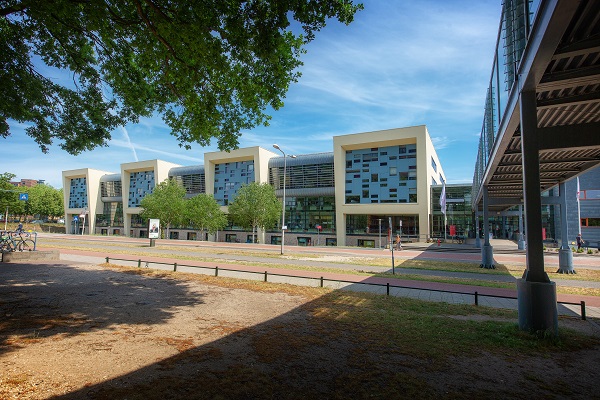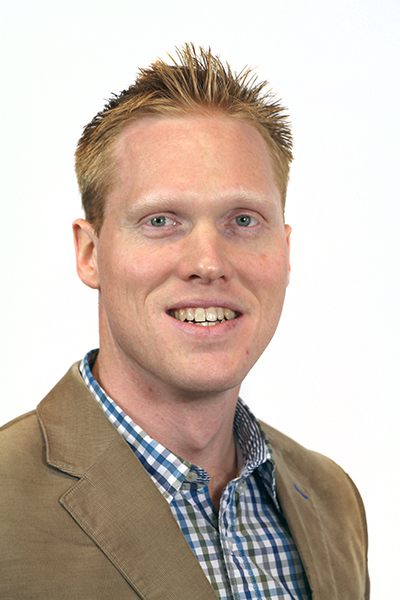Today we sat down with Pascal Beckers from RUNOMI to discuss their new-entry into the IMISCOE Network. We talked about what led to join, their memories with IMISCOE, their future projects and much more! Enjoy!
Pascal Beckers is the scientific coordinator of the Radboud University Network on Migrant Inclusion (RUNOMI), an interdisciplinary cooperation of scholars working on migrant inclusion issues at Radboud University. Pascal is co-founder of the network and representative to the IMISCOE board.
What is RUNOMI?
Since 2018 we increased university wide collaboration on migration and integration studies, and developed a broader network which is at the moment bringing together about 80 scholars working at 6 different faculties of the Radboud University in the Netherlands. The aim of the network is to bundle expertise in this field and benefit from interdisciplinary collaboration. At RUNOMI we work together in education activities, research and valorisation focusing on three broad and interconnected domains: Economic inclusion; Social Inclusion; and migrant access to public services, healthcare and housing. What brings us together at RUNOMI is expertise in migration and integration studies and societal engagement. We actively engage with migrant communities and other societal stakeholders.
First of all, welcome to IMISCOE. What led you and your team into applying to be part of IMISCOE?
IMISCOE has been a European network that many of our members have been engaged with in various ways, what is new now is that with the university endorsement, we wish RUNOMI to become a hub of scholarly exchange within our European network.
When was your first-time hearing of IMISCOE?
Personally, I've been involved with IMISCOE since the very beginning, more than 10 years ago (2005-2006) when I was doing my PhD research. With warm memories I'm looking back to many of the annual conferences and workshops that have been organised by IMISCOE in various places.
You’ve been to previous IMISCOE conferences. What’s one of your fondest memories of these experiences?
I can remember many. The scholarly discussions throughout annual conference programmes have always been very inspiring for my own work. Comparative perspectives have been enriching (learning about policies etc in Europe), but also the warm atmosphere at IMISCOE has always been valuable: there is an open communication and eagerness to learn about all the various opinions and research. This has been bundled with social activities as well. I recall many years ago I organised a seminar at the European University Institute in Florence on migrant entrepreneurship and economic integration of migrants, which has been very enriching with bringing many expert speakers together in this very pleasant setting. My favourite event: the annual conferences. There is always an opportunity to be back in touch with colleagues from other countries but also from the Netherlands because I don't see them that often. The annual conferences are an essential meeting point for integration scholars in Europe.
What does RUNOMI bring to the table to IMISCOE and its landscape?
There are several features I think that make RUNOMI very valuable:
- RUNOMI is one of the largest (local) networks connected to a single university with at the moment around 80 members, from PhD students to professors, thereby enriching the full range of expertise of the Radboud University
- RUNOMI is based on a strong institutional setting, which is unique considering the broad scope of expertise around migrant inclusion studies. Next to the classical disciplines that are well represented within IMISCOE, RUNOMI also beholds disciplines that are less represented in IMISCOE, such as management, law, medical faculty and historian experts. It is this broad range of expertise that RUNOMI bundles that is beneficial for the IMISCOE community
- In terms of organisation and structure we are unique within the IMISCOE network. We have a strong backing of the university’s executive board, we have a network office with an officer, we have a board of representatives from all the participating 6 faculties of the university, we have an advisory board with migrants advising our activities.
- Finally, we have a large membership of young researchers as well, a very active community of PhD students who are willing to play an active role within IMISCOE as well, which is a mayor valued addition to IMISCOE.
Finally, what are some of RUNOMI’s latest migration-related projects you’d like to share?
With a membership of around 80 scholars there is a large number of projects ongoing (on RUNOMI’s website you can find an overview of this).
Our most recent project is a university-wide collaboration on studying the implications of COVID-19 and related policies on European labour migrants and irregular migrants in the Netherlands. This NWO/ZonMw-funded project has just started in September 2020 and will run for 2 years. It connects medical- employment- and housing issues in the border region of the Netherlands and Germany (state of North Rhine-Westphalia) and compares the institutional arrangements and outcomes to ultimately derive recommendations for enhancing the vulnerable situation of migrants working in vital sectors. Concretely this is also a project that we’re going to connect to the IMISCOE community in the standing committee ‘migration politics and government’, in which many of our project members participate (i.e. Tesseltje de Lange, Lisa Berntsen).
Thank you to RUNOMI and Pascal for taking the time to talk to us and once again, welcome to IMISCOE! Looking forward for future collaboration!

Stille Campus Elinor Ostromgebouw

